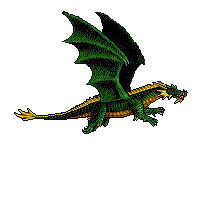Countess Erszebete Cjesthe
Catchphrases: "Darrling! SO glad to see you!" and "You wouldn't deny a
poor, lonely woman a few teentsy weentsy pleasures, would you, sweetie?"
Countess Erszebete Cjesthe, chatelaine and owner of Cjesthe Castle, is one
of the most important nobles in Dolgany. Her castle, perched on a
forbidding crag, overlooks Cjesthe Pass, one of the best routes into
Transmontania from Dolgany. She is a cousin of King Stefan II of Dolgany,
and is related to many nobles on both sides of the current
Dolganian/Transmontanian border.
However, despite undeniable beauty and charm, she is one of the
least-liked, most feared nobles in the entire Border Princes' area. Her
castle couldn't have a worse reputation if it were the Palace of Nurgle,
and its commanding position over Cjesthe Pass means that anybody with sense
takes one of the lesser-known, rougher passes into or out of Transmontania.
Even the other Dolganian nobles, although they are infamously harsh masters
and mistresses of their own holdings, regard Erszebete with loathing.
She has always had evil rumors surrounding her. She has married three
times, to Dolganian and Waldovian nobles. Her first husband died,
ostensibly of a fever; the rumor was that he was poisoned. Her second
husband died after an illness, in which she put it about that he had
injured himself in a fit of madness. Under interrogation by her late
second husband's relatives, a captured servitor deponed that Erszebete had
had him tortured and smothered, and concocted the story of madness to
explain the marks on the body. Husband number three disappeared---and a
room in Cjesthe Castle was reported to have been locked forever. One of
Erszebete's favorite pastimes as a younger noblewoman was to ride through
her county at night, in disguise; anybody whose conduct, face or whatever
displeased her she would whip to within an inch of his or her life.
Lately, though, rumors have gotten much worse. Noble families who sent
their daughters to Cjesthe Castle to learn the arts of being a fine
noblewoman from this well-connected, beautiful widow compared notes, and
the mortality rate from "deadly fevers," "falls from the battlements," and
"riding accidents" was out of all expectations. The peasants have long
complained of disappearances from the area around the castle, and have
reported finding exsanguinated corpses in the woods. Several mass graves
have also been reported to be unearthed by accident, to be hurriedly filled
in when the countess' men came on the scene. Other disappearances have
included itenerant peddlers, merchants' guards and servants, and even some
well-armed adventurers.
The reason for this is very simple: In an eternal quest for youth and
beauty, coupled with a taste for cruelty to her underlings, Countess
Erszebete noticed one day that the blood of others, applied to her skin,
made her seem more youthful. (GM's note: This effect is real, and granted
by Khorne in recognition of her cruelty, in order to draw her further along
toward him.) At first, Erszebete confined her activities to non-fatal
bleeding of servants and offenders, but soon her boldness grew and grew.
Finally, it even encompassed the hapless noble girls in her care, who found
themselves naked in her dungeons, tortured and bled for Madame's amusement
and "beauty treatments." When one of these girls managed to escape by
seducing a guard, clubbing him while he slept, and walking out in his
clothes, the hysterical reports of her peasants were confirmed in a way
that even the Dolganian aristocracy could not easily ignore.
Unfortunately, Castle Cjesthe's position on the Dolganian border with the
Waldovia-Molachian province of Transmontania makes proceeding against
Erszebete very difficult. Not only is Cjesthe Castle almost impregnable in
itself, but any massing of Dolganian forces in the area would be taken by
Waldemar of Waldovia-Molachia as a signal of an impending invasion. Also,
despite being Dolganian herself, Erszebete would not hesitate to ask for
Waldovia-Molachian help in the event of a siege, since she is fully aware
of the strategic value of her castle. These days, she never leaves her
castle for any reason, because her dependence on her "beauty treatments"
has increased markedly, and rumour has it that she has begun to _change._
Confident in her impregnable position, Erszebete has also taken to openly
worshipping Chaos, and has even financed an expedition to the ruined Castle
Drachenfels, hoping to find any of Drachenfels' books or magic items that
might help her. She has become quite an admirer of Constant Drachenfels
because of his long life and utter defiance of what others wanted him to
do, and has even sworn to bring his killers to "justice."
Stefan of Dolgany is currently in the middle of negotiations with Waldemar
of Waldovia-Molachia, to mount a joint expedition against his evil cousin.
Waldemar is extremely interested, partly because many of the peasants
Erszabete has had kidnapped came from his side of the border, and partly
because as long as Cjesthe Castle has such a well-deserved evil reputation,
trade with the outside world will be severely restricted. Other reasons
for him to want to put down Countess Erszebete include the fact that many
of "her own" peasants are Tilremian speakers, and he considers himself
the rightful protector of all Tilremian speakers everywhere;
and last but never least, one of her ill-fated husbands was a cousin of his.
Adventurers might well find a niche for themselves in this situation. Both
rulers would pay very well for up-to-date information from within County
Cjesthe. Anybody actually able to infiltrate the Castle, whether to spy
out the defenses, subvert Countess Erszebete's soldiers, or rescue some of
her "blood cattle," could be well-rewarded.
(Note: All of this is based on actual history. For the most part, I used
the real-life story of Countess Elisabeth Bathory of Hungary, but some
touches I took from the stories about the woman who built "Rose Hall" in
Jamaica. )







